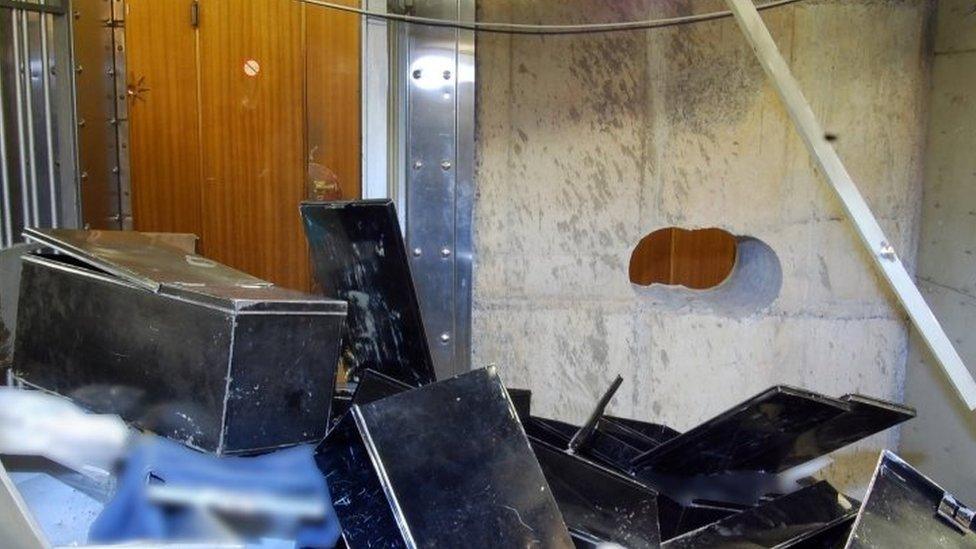Hatton Garden raid: A pension job for Terry Perkins?
- Published
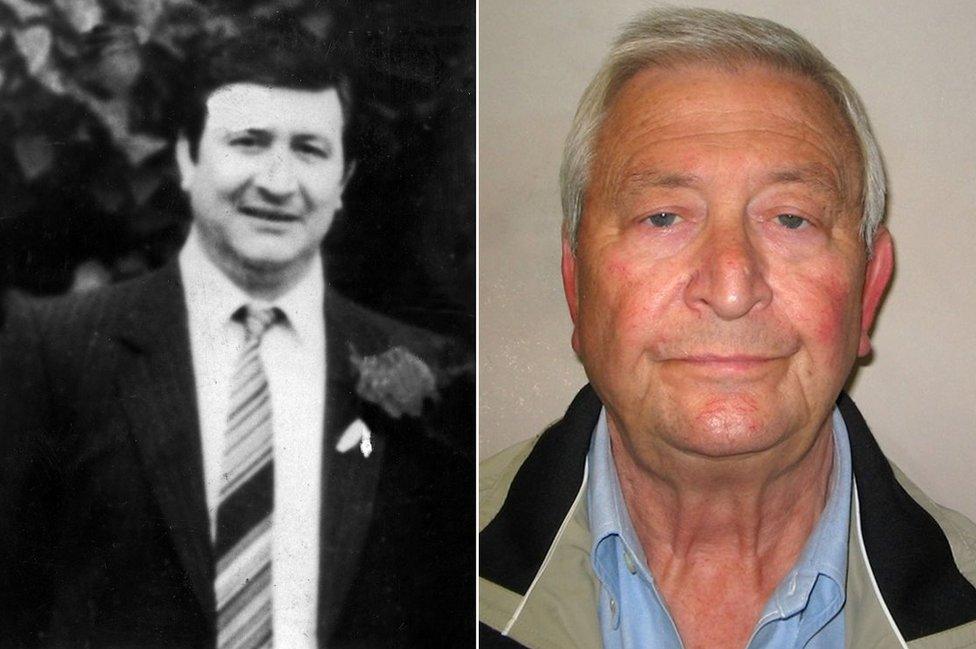
Terry Perkins in the 1980s and in his late 60s, as photographed last year
One of the masterminds of the Hatton Garden heist was a career criminal who helped carry out a record-breaking raid in the 1980s. What made Terry Perkins carry out another high-risk job just a few years after being released from prison?
They say lightning never strikes twice, but it did with Terry Perkins.
On his 35th birthday in 1983 he was part of the Security Express depot raid in Shoreditch, east London. Six million pounds was stolen, making it the UK's biggest-ever cash robbery at the time.
The exact day, 32 years later, when other 67-year-olds may have been taking a deep breath and blowing out their candles, Perkins was part of the team boring through a wall into the vault at Hatton Garden.
They made off with jewels and precious stones estimated to be worth about £14m.
Twice Perkins thought he had pulled off the crime of the century. Twice he has been caught and brought to justice.
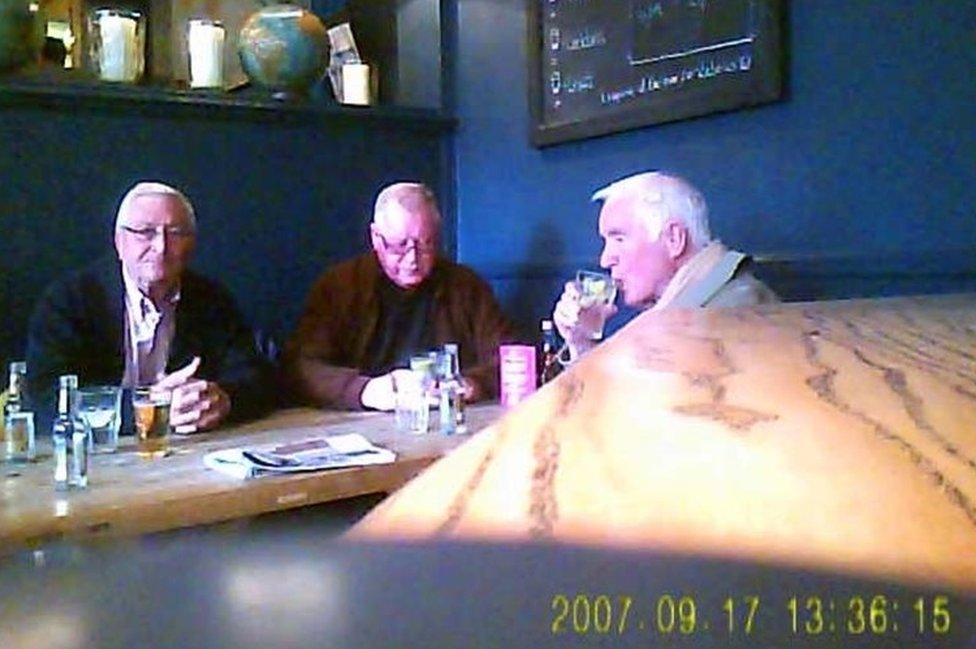
Co-conspirators Terry Perkins (right), Kenny Collins (centre), and Brian Reader met in The Castle pub in Islington to plot the Hatton Garden raid
In a darkened room, former Flying Squad detective Peter Wilton runs his finger over the dusty files of evidence he gathered against Perkins after the 1983 heist.
Supt Wilton's team traced more than £400,000 Perkins had spent in the months after the Security Express job. Some £100,000 was deposited at Lloyds Bank in Palmers Green, there was a £28,000 property in Southgate bought under a false name, and a Ford Granada purchased for £5,400.
It was all incriminating detail, or, as Mr Wilton puts it in Flying Squad speak, "it looked stone bonkers" - an open and shut case.
Now in his 70s and long retired, BBC London tracked down Mr Wilton to ask him what he thought when he heard Perkins had been arrested over the Hatton Garden job.
"I was absolutely flabbergasted," he tells me.
"Having been involved in the biggest cash robbery in the UK at the time - and then getting captured and sentenced to 22 years - I would've thought he'd have learned a lesson and retired and got on with his property letting.
"But obviously he decided to have one more go for his pension."
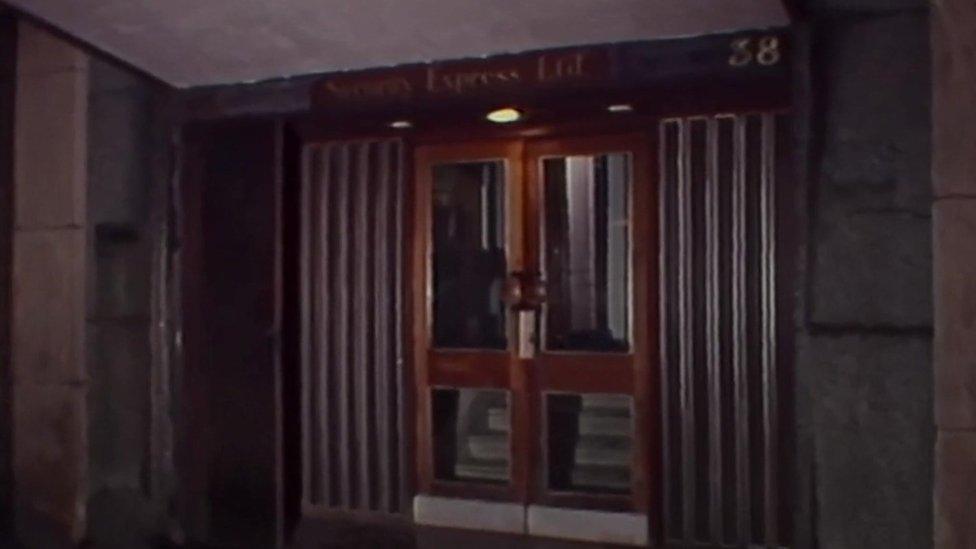
Perkins was convicted of robbing Security Express Ltd depot in 1983 in the country's biggest cash robbery in its history
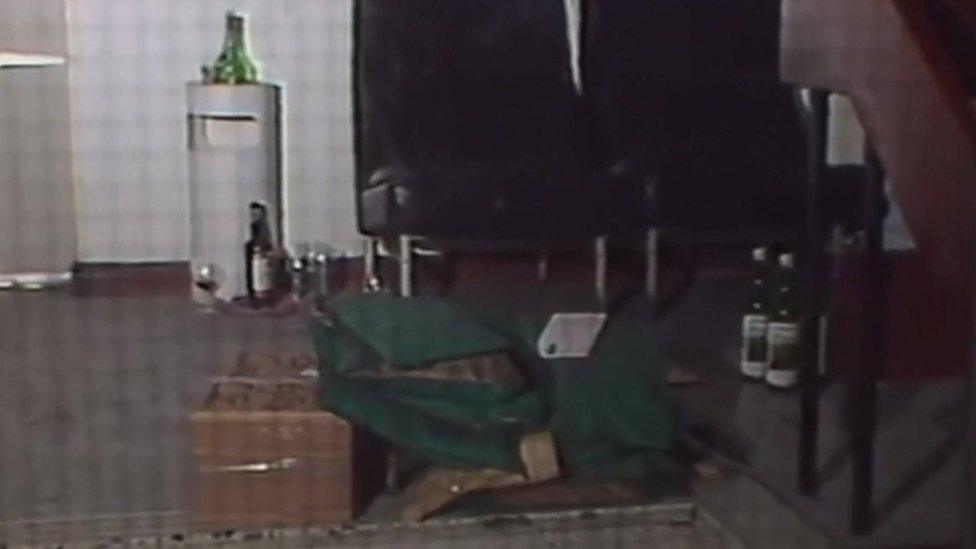
Police traced up to £400,000 of the Security Express stash that Perkins had spent in the months after the robbery
In fact Perkins did not serve the full 22 years for the Security Express robbery because he broke out of Spring Hill prison in Buckinghamshire in 1995.
Incredibly, he was at large for 17 years before he was returned to prison in 2012. Freshly released from prison he soon became involved in plotting the Hatton Garden robbery.
Bob Neil, chair of the Justice Select Committee, said: "It can't be that justice was done if someone's had 17 years of prime time to enjoy the proceeds of their crime.
"That's laughing - not just in the face of justice - but of everybody else. Clearly there was a really bad failure at that time."
The Ministry of Justice said Perkins' absconding was not a matter for them. Thames Valley Police, the force area in which Spring Hill prison is located, would not comment.
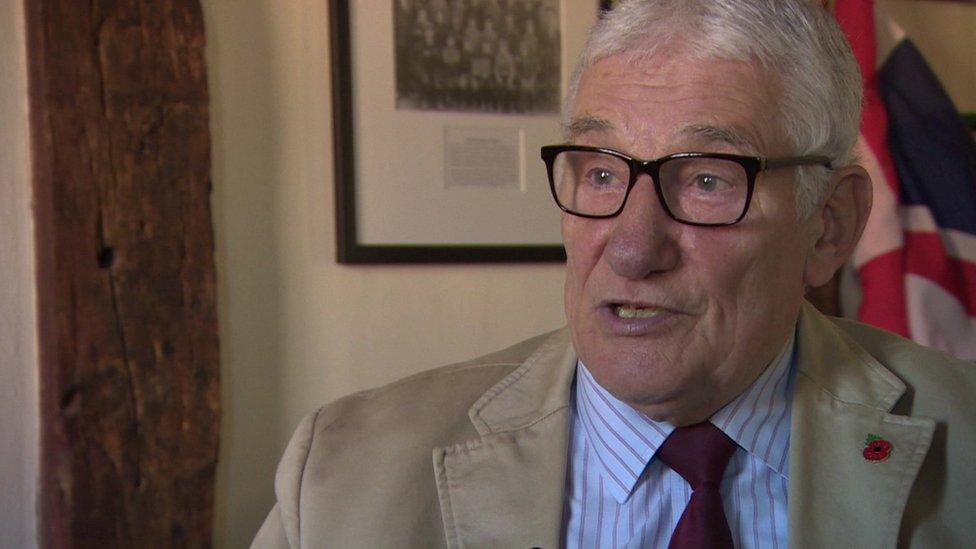
Peter Wilton investigated Perkins for the Security Express robbery in 1983
Supt Wilton describes the man he interviewed in 1983 as a "calm and docile chap", who was "polite and reserved" during questioning.
He recalls that Perkins was often to be seen in a pub dressed in a suit and tie giving the impression to many he was actually a serving police officer.
Far from it.
He had been plotting how to carry out a robbery on an unprecedented scale. But what Mr Wilton believes let down Perkins in both 1983 and 2015 was an inability to plan for what to do after the crime.
"In most cases like this they do robberies to perfection - masterminded. But then when it comes to the spoils afterwards, they don't quite know how to deal with it, whether to dig up a hole and hide it away, or leave it for a few years.
"But no, they always seem to spend straight away and that's how lots of people are captured."
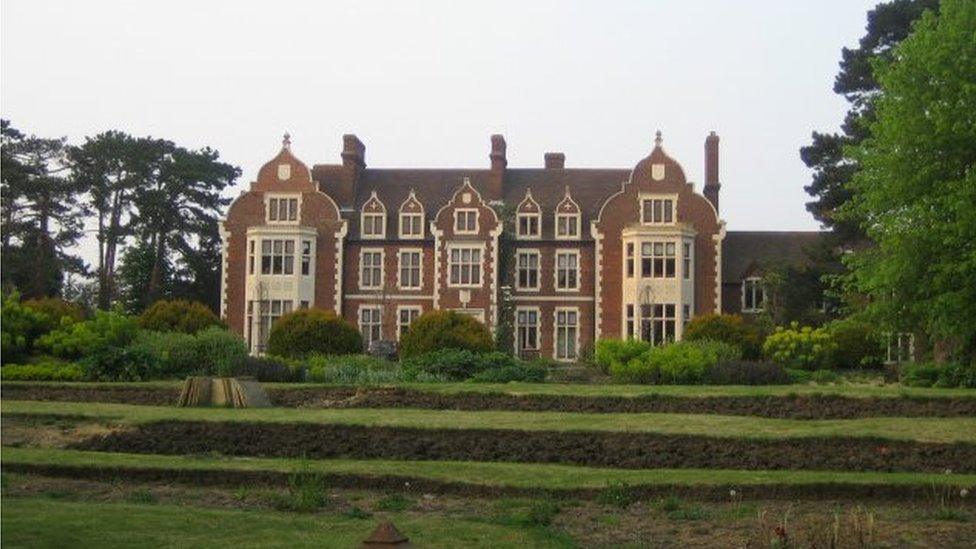
Perkins absconded from HM Prison Spring Hill in 1995 and went on the run for 17 years
So why does Mr Wilton think Terry Perkins risked it all once again and involved himself in the Hatton Garden job?
"It could well be that he wasn't happy with the way his life was going and wanted a pension. And this seemed the biggest and best way of doing it. One for the road, as they say."
The Hatton Garden trial was told that two-thirds of the stolen goods - worth about £10m - have never been recovered.
The former detective thinks Perkins and his accomplices weighed up the risk and decided it was worth their while.
"I presume they worked out what the tariff was for burglary - [10 years] - and said to themselves: 'If we're captured we'll probably only do about four years at the most', and with the time they've had on remand even less. And after four years you can come out with a couple of million.
"I think that's a good pension."
- Published14 January 2016
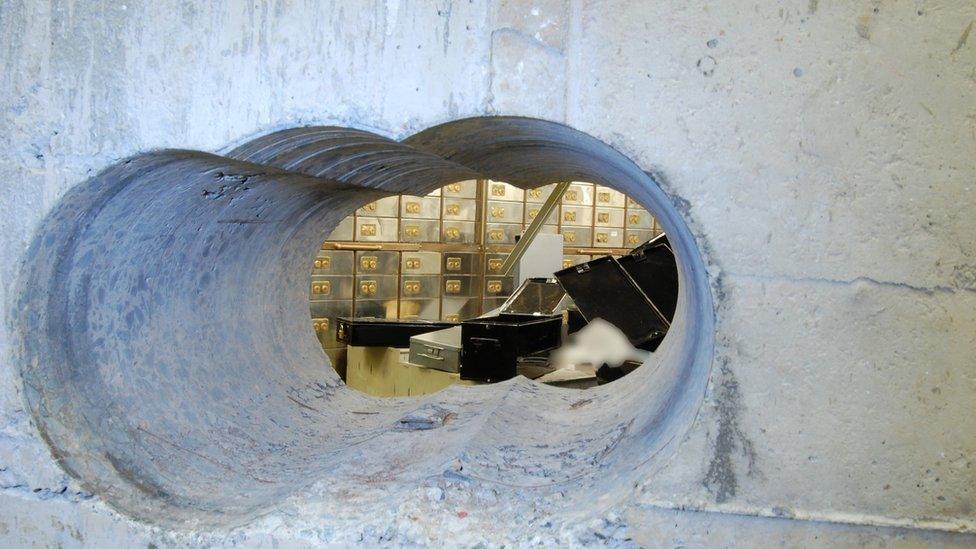
- Published14 January 2016
